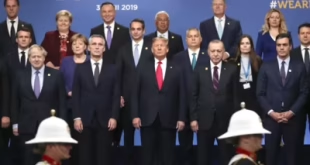- The Supreme Court collegium has done well to push back against the Union government’s attempts to block the appointment of some advocates as High Court judges.
- The three-member collegium, which makes recommendations for High Court appointments, has reiterated its decision to elevate lawyers Saurabh Kirpal to the Delhi High Court, R. John Sathyan to the Madras High Court and Somasekhar Sundaresan to the Bombay High Court.
- As it dealt in detail with the objections raised by the Centre in each individual case, the motives behind the government’s ongoing contestation with the judiciary over appointments to constitutional courts stand exposed.
- Communications between the collegium and the Centre offer a glimpse into the untenable nature of the government’s objections to proposed appointees, making it abundantly clear how badly the current regime wants to control judicial appointments.
- If the objection based on a candidate’s sexual orientation smacks of a medieval-minded ideological bias, the effort to stall the elevation of a couple of advocates based on their social media activity exposes a mindset that sees appointments to the higher judiciary as a system of spoils meant for political loyalists.
- As the collegium has pointed out, neither the sexual orientation of Mr. Kirpal nor the airing of political views by the other two advocates will impinge on their suitability or integrity.
- The government appears to think that potential candidates for judicial appointments should not have political views of their own, or that a tendency to make their views or opinion known will amount to a possible bias in their functioning as judges.
- Nothing can disprove this more than the fact that there are other names — to which the government seems to have no objections — that are closely associated with political parties.
- Indeed, one can say that the history of judicial appointments is replete with instances of government law officers, who invariably enjoy the confidence of the political leadership at the Centre or the States, and lawyers who represent political leaders being offered positions on both the Supreme Court and High Court Benches.
- The objection based on sexual orientation is particularly appalling, as it is contrary to the constitutional position against discrimination based on sex or sexual preferences. The viewpoint that the collegium system of appointments is flawed as it is opaque and tends to reduce the zone of consideration is valid.
- However, the manner in which the current regime is seeking to filter out candidates who, it suspects, may not further its political agenda will surely give the impression that allowing any sort of government interference will pose a threat to judicial independence.
SOURCE: THE HINDU, THE ECONOMIC TIMES, PIB
 Chinmaya IAS Academy – Current Affairs Chinmaya IAS Academy – Current Affairs
Chinmaya IAS Academy – Current Affairs Chinmaya IAS Academy – Current Affairs



